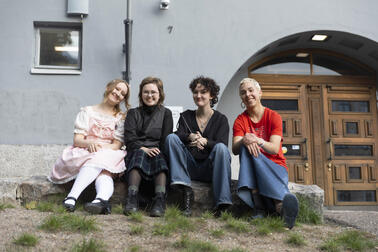
The number of home care customers is increasing, and urgent care situations are becoming more and more challenging. They often necessitate contacting the emergency response centre and referring the customer to an emergency clinic even though, with the proper training, the care staff could resolve many issues in the customer’s home. Through a joint pilot project, the Duodecim Oppiportti continuing education service for health care professionals and the City of Helsinki examined the efficacy of virtual training in the context of home care and 24-hour care. In the future, it will be possible to leverage new technology even more effectively than before in training related to health care and elderly care.
A pilot project offering virtual training for emergency situations in home care began in March 2020, was interrupted in the spring due to the coronavirus pandemic, and eventually continued in the autumn. The virtual training involved care workers practicing the systematic assessment of basic vital functions, resulting further measures and interprofessional consultation in true-to-life environments. A VR headset and computer were used to support the training.
Extremely
positive experiences of the training among nurses
Based on the questionnaire following the training for emergency situations, the results of utilising virtual reality are very promising. More than 90% of the respondents found the VR training to be extremely useful, regardless of age group and work experience. The participants also felt that the training will bolster their competence in emergency situations. Furthermore, the training was estimated to have improved the nurses’ consultation skills.
“These virtual training sessions that supplement our online courses now provide a true-to-life practice environment for health care and elderly care professionals. For this group of professionals, there has been little to no training that offers a safe way to learn new things and test one’s skills on a virtual patient,” says Duodecim Oppiportti’s Editor-in-Chief Johanna
Tulonen-Tapio.
As a pioneer in implementing new health care technology, Duodecim has also developed VR training solutions related to resuscitation, assessing an unconscious patient and initiating treatment. VR provides the opportunity for cost-effective training regardless of time and place.
Helsinki
as a trailblazer in the virtual training of nurses
The City of Helsinki’s Pätijä project (2017–2020) examined the reasons for the high number of first-aid alerts and frequent use of emergency services in home care and 24-hour care. Competence improvement was identified as one of the areas requiring development. Field workers indicated the need for a new kind of training and practice environment.
“VR training is an amazing new achievement for us and helps drive the digital development of the health care sector forwards. I am very happy that Duodecim took to my idea and decided to work together with us to develop it further. The virtual training courses will most likely resume next spring as we decide on the quantity and locations of the new VR training systems,” says City of Helsinki Project Manager Tuula Lahti.
Care workers must be able to act calmly and confidently in unexpected emergency situations. The virtual training demonstrated to the participants how they can better monitor the overall well-being of the customers even in unexpected situations. The VR training provided the necessary tools for care situations and reporting.
More
information:
Link to marketing video(Link leads to external service) (in Finnish)


